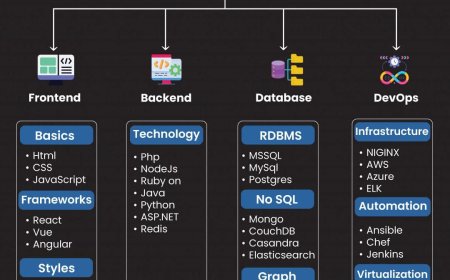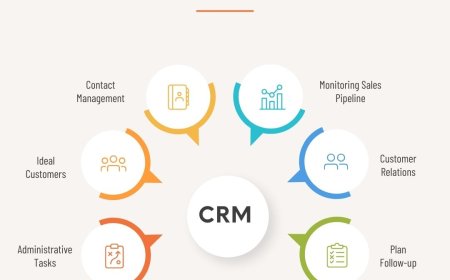CREST vs PCI Testing: Choosing the Right UK Pen Test Approach
Learn the key differences between CREST and PCI DSS testing to select the right cybersecurity solution for your business needs and compliance goals.

In todays digital landscape, cybersecurity is a vital business requirement. Whether you run a small online shop or a mid-sized services firm, your systems face constant cyber threats. Thats where penetration testing becomes essential. But with several testing options available, which should you choose? Two of the most recognised standards are CREST and PCI DSS. Each serves different purposes, with varying scopes and audiences. Understanding these differences is keyespecially if you depend on IT support for small companies to handle your infrastructure and security. This blog explores both options to help you decide which approach best suits your organisation.
Why Penetration Testing Matters for UK Businesses
Cybersecurity threats are on the rise in the UK. From phishing scams to ransomware attacks, even small companies are prime targets for hackers. The cost of a breach can be devastatingnot just financially but also in terms of customer trust and legal compliance.
Thats where penetration testing comes in. Also known as ethical hacking, penetration testing simulates real-world attacks to uncover vulnerabilities in your IT systems. It helps you fix weaknesses before cybercriminals can exploit them.
For small businesses that often lack in-house cybersecurity teams, partnering with external expertsor ensuring theirIT support for small companiesincludes penetration testingis a vital step in safeguarding their data and systems.
What Is CREST Penetration Testing?
CREST, which stands for Council of Registered Ethical Security Testers, is an international accreditation body that certifies penetration testing companies and professionals.
When you choose a CREST-accredited provider, youre getting:
- Qualified testers who have passed rigorous exams.
- Standardised, repeatable testing processes.
- Ethical guidelines and codes of conduct.
- High-quality reports with clear risk analysis.
CREST testing is flexible and can be customised to your needs. Whether you want your network infrastructure, cloud environment, or web applications tested, CREST providers can tailor the test accordingly.
This makes it an excellent choice for businesses that are looking for a more holistic, high-assurance approach to cybersecurityespecially if you operate in sensitive industries like law, finance, or healthcare.

What Is PCI DSS Penetration Testing?
If your business handles card payments, youve likely come across PCI DSSthe Payment Card Industry Data Security Standard. This is a set of security rules established to protect cardholder data.
Part of PCI DSS compliance includes penetration testing, specifically targeting the systems that store, process, or transmit payment card information. This ensures that vulnerabilities in these areas are identified and fixed before they can be exploited.
PCI DSS testing focuses more on regulatory compliance than broad security assurance. That doesnt make it less importantespecially if youre running an e-commerce platform or taking in-person card payments. Failing to comply can lead to penalties, reputational damage, or even being banned from processing payments.
Unlike CREST testing, PCI DSS penetration testing must follow a specific methodology. It often includes both external and internal testing, covering all parts of your cardholder data environment.
CREST vs PCI: A Simple Comparison
To make the choice easier, here's a comparison table that outlines the core differences between CREST and PCI DSS testing.
|
Feature |
CREST Penetration Testing |
PCI DSS Penetration Testing |
|
Purpose |
Broad IT security assurance |
Card payment security compliance |
|
Applicability |
Any organisation, especially high-risk industries |
Businesses storing, processing, or transmitting card data |
|
Accreditation Body |
CREST UK |
PCI Security Standards Council |
|
Scope of Testing |
Customised networks, apps, infrastructure |
Payment systems and cardholder data environments |
|
Mandatory? |
No, but often preferred for quality assurance |
Yes, for PCI compliance |
|
Ideal For |
Firms seeking high trust and tailored insights |
Retailers, e-commerce, financial services |
How to Choose the Right Testing for Your Business
Choosing the right type ofpenetration testing UKservice depends on your business model, risk profile, and regulatory requirements.
Ask yourself:
- Do you process or store payment card data?
? You need PCI DSS testing. - Do you manage sensitive client data, intellectual property, or want a full view of your security risks?
? CREST testing is the better option. - Do you operate in a sector with strict regulations or high-value information?
? CREST may provide the depth of testing you require.
Another crucial consideration is your IT support arrangement. Many small businesses rely on outsourced IT support for small companies, which should ideally include guidance on cybersecurity strategy. A good IT provider will not only recommend the right type of pen testing but also help you act on the findings to improve your security posture.

Real-World Scenarios
Here are some examples to show when CREST or PCI DSS testing would be more appropriate:
Scenario A: Local Retailer Going Online
A small high-street retailer launches an e-commerce website and starts accepting card payments online. To remain PCI compliant and protect customer data, they undergo PCI DSS testing focused on their payment gateway and hosting environment.
Scenario B: Legal Firm Holding Sensitive Client Data
A mid-sized law firm in London wants to ensure its client data, internal documents, and communication channels are secure. They choose CREST-certified testing to audit their entire network, including emails, file storage, and remote access systems.
Scenario C: Fintech Start-up
A start-up building a financial app deals with both sensitive user information and online card payments. They invest in both CREST and PCI DSS testing to meet investor expectations and regulatory requirements while also ensuring all-round security.
Working with a Trusted Provider
No matter which testing route you choose, its essential to work with a trusted and certified provider. Look for companies that:
- Are officially recognised by CREST or PCI SSC.
- Provide clear, actionable reports.
- Offer support post-testing to help you fix vulnerabilities.
- Communicate in straightforward terms, especially if you're a non-technical business owner.
If your IT support for small companies doesnt currently include penetration testing or risk assessments, it might be time to reassess your provider.
Conclusion
In the world of cybersecurity, one size does not fit all. CREST and PCI DSS penetration testing offer two very different approachesbut both are vital in keeping businesses safe and compliant.
Whether youre securing client data or processing card payments, understanding the difference between these testing types can help you make informed, strategic decisions. For UK businesses, especially smaller firms navigating limited resources, strong IT support plays a crucial role in managing cybersecurity effectively.
If you're looking for a reliable partner to help with penetration testing UK or tailored IT services, Renaissance Computer Services Limited offers expertise, clarity, and dependable support for businesses across various sectors.


























